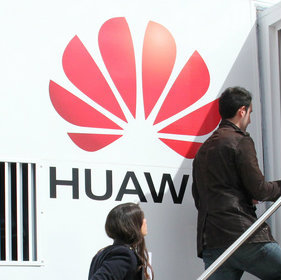Also in today's EMEA regional roundup: Bouygues gets off to a flier; Sunrise raises its earnings guidance; Vodafone/INWIT towers deal set for the summer.

Also in today's EMEA regional roundup: Bouygues gets off to a flier; Sunrise raises its earnings guidance; Vodafone/INWIT towers deal set for the summer.
A high-profile report by a Conservative MP and two academics has argued that Huawei should be completely banned from the development of 5G networks in the UK, contradicting the view of the country's National Security Council, which last month decided that Huawei could be used for "non-core" 5G equipment. According to the Guardian, the report, issued by the Henry Jackson Society (HJS), warns that Huawei's operations are "subject to influence by the Chinese state," and that the Chinese vendor "has long been accused of espionage." The report also carried a foreword by former MI6 boss Richard Dearlove, who writes: "I very much hope there is time for the UK Government ... to reconsider the Huawei decision."
In a statement, a Huawei spokesperson responded:
This report is long on politically motivated insinuation but short on fact. It fundamentally misunderstands the nature of modern China, global technology markets and of 5G. The isolationist approach they recommend may support an America first trade agenda but it's hard to see how it’s in UK's national interest.
We are an independent, employee-owned company which does not take instructions from the Chinese government. In 32 years, there have been no significant cyber security issues with our equipment. We hope and expect that any decision on Huawei's participation in Britain's build-out of 5G networks will be based on solid evidence, rather than on unfounded speculation and groundless accusations.
This latest chapter in the Huawei/UK relationship comes in the wake of President Trump's executive order yesterday that has given the US Commerce Secretary the ability to ban the import of gear and services from companies that are perceived have close ties to foreign governments, a move widely understood to be aimed squarely at Huawei. (See Trump Clears the Way for a Huawei Ban.)
France's Bouygues Telecom got off to a flying start in 2019, seeing first-quarter sales up 13% year-on-year, to €1.45 billion (US$1.62 billion). The operator added 459,000 mobile customers during the period, bringing its total to 16.8 million, including machine-to-machine (M2M) contracts. On the fixed side, Bouygyes added 94,000 FTTH customers, bringing its total to 663,000 and doubling its FTTH penetration rate to 18%.
Revenue at Switzerland's Sunrise was down 2.6% year-on-year in the first quarter, a result, says the operator, of "lower hubbing and hardware sales." Gross profit, however, was up 4.2% to 293 million Swiss francs ($290 million), thanks in part to strong postpaid mobile subscriber adds -- 43,200 during the quarter, its best performance since 2010. On the back of these results Sunrise is raising its guidance on EBITDA (earnings before interest, tax, depreciation and amortization) for the year to CHF613-628 million ($607-$622 million), up from CHF608-623 million ($602-$617 million).
The chief executive of Italian towers firm INWIT has said that a deal to merge Vodafone's tower infrastructure into INWIT will be signed "by the summer," according to a Reuters report. INWIT is 60% owned by Telecom Italia, and the deal forms part of the Italian incumbent's plan to reduce its €25 billion ($28.34 billion) debt pile, says the report. (See Telecom Italia Says 5G Auction May Force It to Sell Assets.)
Nokia has landed a 5G core network deal with Ooredoo Qatar, bringing its AirFrame data center offering, a range of virtualized network functions and SDN products from Nuage Networks -- among other items in its upgrade toolkit -- to the project. The whole shebang will be deployed in Ooredoo's data centers in Doha.
Business Sweden, an organization that aims to help Swedish companies increase their global sales and international companies invest in Sweden, has opted for a hybrid-WAN offering from Telia. According to the operator, the WAN will allow traffic to be routed directly to the Internet through Telia Carrier's global IP backbone, rather than having to travel via a central server, thus shortening response times.
Switzerland's Kudelski Group has teamed up with US hardware design company CoreKinect to create a miniaturized sensor system that will enable organizations to securely track their IoT-related assets. For instance, the sensor can fit inside the lid of a pill bottle to track chain of delivery for pharmaceuticals, or can be incorporated into food packaging to monitor the temperature and quality of food throughout the distribution chain.
New research from Swedish IoT analyst firm Berg Insight concludes that 5G will not reach the IoT market until late 2020. However, Berg does not expect 5G to be an "instant hit" in the IoT sphere, reckoning that by 2023 5G will still only account for just under 3% of the total installed base of cellular IoT devices.
Telensa, a Cambridge, UK-based smart-city applications specialist, has landed a smart street lighting contract with Sandwell Council in the UK's West Midlands. The Council plans to install nearly 4,000 lights by 2020, with the intention to increase this to over 11,000 by 2022, all of which will be wirelessly connected and managed using Telensa's PLANet system.
— Paul Rainford, Assistant Editor, Europe, Light Reading
About the Author(s)
You May Also Like











